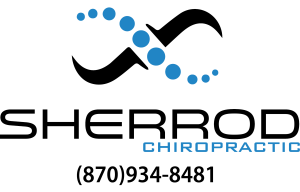Choosing a Healthy Diet
 The importance of nutrition for health cannot be overstated. The average person’s daily meals and snacks consist of unhealthy dietary choices that can lead to chronic disease even in young people. A few simple diet changes can have a positive impact on health and prevent a variety of problems in the future.
The importance of nutrition for health cannot be overstated. The average person’s daily meals and snacks consist of unhealthy dietary choices that can lead to chronic disease even in young people. A few simple diet changes can have a positive impact on health and prevent a variety of problems in the future.
Wellness Tip: Choosing a Healthy Diet
The importance of nutrition for health cannot be overstated. The traditional coffee and doughnuts for breakfast, hamburger for lunch (or no lunch), snack of cookies and a soft drink, followed by a huge dinner with more protein than one person needs in an entire day are unhealthy dietary choices, leading to chronic disease even in young people. A few simple diet changes can have a positive impact on health and help prevent a variety of problems in the future.
 Healthy Dietary Choices
Healthy Dietary Choices
- Eat more raw foods. Cooking and canning destroys much of the nutrition in foods. With the exception of canned tomatoes, which have been shown to help prevent prostate cancer, fresh or frozen fruits and vegetables generally have more natural vitamins and minerals.
- Select organically grown foods when possible, because they have lower amounts of toxic elements, such as pesticides and heavy metals.
- Consume 25 to 30 grams of fiber a day. Whole-grain breads and cereals, beans, nuts and some fruits and vegetables are good sources of fiber. High-fiber diets can help prevent digestive disorders, heart disease and colon cancer.
- Eat out more sparingly. Food preparation methods in restaurants often involve high amounts—and the wrong types—of fat and sugar.
- Brown-bag your lunch to control your fat and sugar intake while adding nutritious fruits, vegetables and grains.
- Drink plenty of water to stay hydrated. Don’t substitute coffee, tea and soft drinks for water.
- Limit your intake of alcohol, and quit smoking. Drinking alcohol excessively and/or smoking hinder your body’s ability to absorb nutrients from food.
Vegetarian Diets
Research shows that a good vegetarian diet as part of a comprehensive health program can help prevent heart disease, cancer and other diseases. However, fried foods, hydrogenated fats and commercial meat substitutes may contain more sugar and fat than a meat-eater would consume. If you are considering a vegetarian diet, keep the following tips in mind:
- Eat a variety of fruits, vegetables, grains and legumes to consume a wide range of nutrients.
- Consume fortified foods or take supplements, such as vitamin B12, to obtain the nutrients you no longer get from animal-based products.
- Children, pregnant and breast-feeding women, and people recovering from illness should consult their healthcare practitioners before eliminating animal products from their diet.
Supplements
- While dietary supplements are becoming increasingly popular, they are not substitutes for foods, nor can a person sustain good health simply by taking vitamin and mineral supplements. When taken properly, however, supplements can play an important role in achieving maximum health.
- Since supplements are just an added source of nutrients, consume dark green vegetables, oils, nuts and seeds, which are sources of magnesium, fatty acids and many other vitamins and minerals.
- Don’t “self-prescribe.” Consult your doctor of chiropractic to determine what supplements are best for you, especially if you have symptoms such as headaches, chronic fatigue or cardiac problems.




